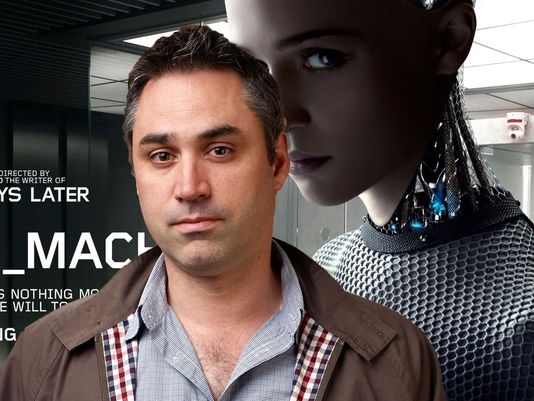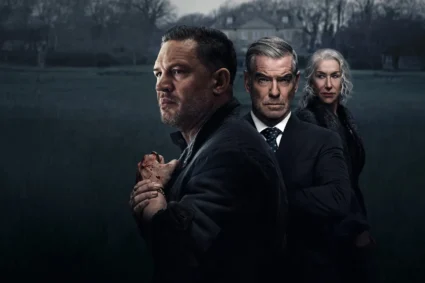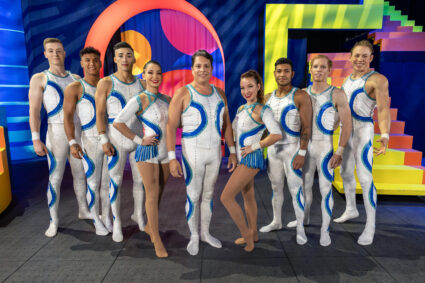
In this edition of INTERVUE, I interviewed director Alex Garland. In the past fifteen years, he wrote the screenplays of movies like “28 Days Later”, “Sunshine” and “Dredd”. This time, he has wrote and directs the upcoming sci-fi feature “Ex Machina”
Now, I read that this movie was inspired by a novel by Murray Shanahan, what was about the particular book that spoke to you?
It was just a small intelligent beautiful kind of argument in the writing he made but what he was proposing an argument for artificial intelligence which says one day we’ll be able to have it. There’s a way of approaching thinking about consciousness that doesn’t involve kind of magic, physics or anything, which isn’t sort of repeatable that the brain is such a physical object and the mind is the containment in the brain. If that is true, then you would able to create not A.I. as its owner
The film conveys the idea that we create the A.I. but we won’t be able to control them, correct?
No, not entirely and as much as you know Nathan would have had within his ability in the film to create Ava in such a way he could control her like he could have had a kill switch or a kill command word that would have used to shut her down but he was interested of giving her free will. If you give something free will then innately because controllable.
Besides Alicia and her brilliant ballet background, how do we see the visual effects to convince people that Ava is not just a robot?
Actually, in a strange way, that’s pretty much the easiest thing to do in a film. The way humans are, we will project sentient into almost anything. It starts when we are children and we’ve got teddy bears. You try to find a child that doesn’t believe that their cuddly toy has a mind and heart. It’s tough; it’s hard to do because they all believe that. In adults, it’s kind of the same. A businessman with his fountain pen. It could be someone whose computer is playing up and they feel that the computer is getting at them and is angry with. I was taking a drive with an adult one-day who was annoyed with their car because their car kept breaking down. They were talking about the car, all right and then stop talking about their car because they didn’t want to hurt the car’s feelings. I was thinking a car doesn’t have feelings because it’s a car but humans just project this stuff into almost anything. We put it into trees, rocks, and the clouds. We give them all sentient in a strange kind of way. The hard thing in humans is stopping them from doing that. Not encouraging them.
(Alex points to the “Ex Machina” poster of Ava while we were talking) If you have this beautiful object, which is really stunning & beautiful, it’s a machine as well as a beautiful actress playing this machine looking around, people will fascinate and hypnotized. Most people in the film will respond to Ava, they have no doubt that she has consciousness. They don’t see her like a toaster, they see her as something much more amazing.
Tell us about the casting of Ex Machina. We have Domnhall and Alicia working together again since “Anna Karenina” and Oscar Isaac in this film.
They are very, very fine actors. Very talented serious actors. One of who is on the cut of ascendancy. The way film industry works is kind of that people know this with actors before they break. All of these actors were at that point, when I cast them, were buzzy actors. With Domnhall, this is the third movie we’ve worked on together. So I knew him very well. Oscar and Alicia were not names or anything like that but in the industry, everyone knew who they were.
You have been writing novels and screenplays for films. What made you decide that it was time to direct?
I thought it wasn’t a very big deal. I kind of think we overstate the world of the director like the director is one of the team of people in a film. I been working in film for a while and been in part of many productions. Mostly in this film, it was just like the other productions. A lot of it was like exactly the same. I worked with the same people in several movies. So we knew each other well for the past fifteen years. It was no big thing.
Tell me about the intricate design of Ava. It’s nothing like I’ve seen before yet it draws me.
There were two key things about this design. One that she obviously doesn’t look like a robot in any other movie. When she first walks in, you don’t immediately think about Star Wars not I’ Robot because that would have been a mistake from the filmmaking point of view. You want the audience to kind of have the same reaction that this young man is having which is “What the hell is this is kind of amazing yet strange and beautiful yet sort of spooky?”
That’s what I was thinking.
All these things together and not thinking she looks like C-3PO. So, partly it’s about being clear that you demonstrate that she is a machine. If she was wearing a full-body suit, you might ask yourself the question “She’s not really a machine. I mean in the logic of the film. She’s not really a machine but a women pretending to be a machine but if she’s got these missing sections. There’s no doubt that she’s a machine. She’s a 100% obviously a machine. She couldn’t be a normal girl but she got this mesh. What the mesh does is every now and then the light catches it and suddenly you see the shape of a girl in her early twenties, her midriff, her legs, and the curve in her arms. It sort of pulls you away from her being a machine. You can see she is machine but is tugging you away from that into something that is actually more seductive and more beautiful.
What drew you into science fiction since you wrote the screenplays for “28 Days Later”, “Sunshine”, “Dredd” and now “Ex Machina”?
You can do big ideas and you’re allowed to do them, you’re permitted. Sci-Fi is not embarrassed by people like this; it actually kind has encouraged them.
What’s your favorite sci-fi film of all time?
I have three. Stalker is like being hypnotized. 2001 is one of the most intelligent films that have ever been made. Alien is one of the most powerful and visceral films.
After directing for the very first time, what the one lesson you will take with you to the next film that you direct?
Directing is the most overrated job in the entire world because people think its like the begin and end of filmmaking but it isn’t. People make it like its the director’s vision. The fact is that there is a whole crew of people where everyone is pulling together. There are brilliant directors but most of them are probably just like me which is being part of a team of people and lucky to have the support and skill.
Check out “Ex Machina” and be intrigued as hits theaters TOMORROW!


